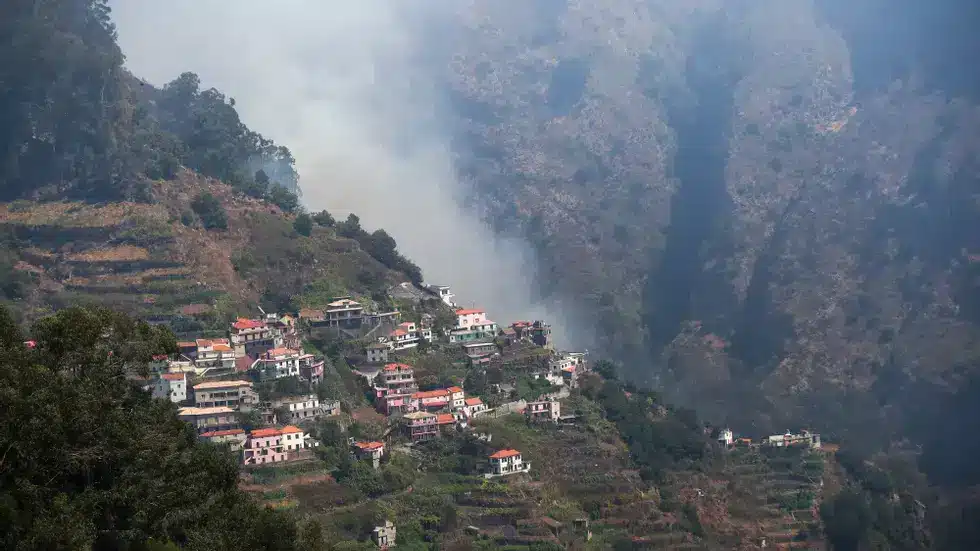Shoring up work must be done in time, warns ZERO
Portuguese environmental association ZERO warns that the first steps after the Madeira island wildfire should be to draw up an assessment report and carry out work before the autumn rains.
While political fall-out continues over the perceived mismanagement of this devastating fire that was only “totally extinguished” on its 13th day (yesterday), ZERO – the association for a sustainable earth system – believes there is no time to lose.
Senior collaborator Paulo Lucas stresses that rains “will wash away the ashes, as well as the soil itself, which is undesirable”.
That, in a landscape of escarpments, is putting it diplomatically. But Paulo Lucas is looking at the situation from the regeneration point of view.
“If we allow the soil to be dragged away, we don’t provide the ideal conditions for the vegetation to recover”, as well as the trees, he explained – adding that there are various techniques to help recovery, namely chipping and incorporating the rest of partially burnt trees into the soil – but they have to be individually categorised and adapted to each location.
An assessment document will be “invaluable because it (will) contain specific measures for each location and identify places most susceptible to erosion, in other words, it is not a case of spending money for nothing everywhere, because not all locations will require major investments”, he said.
But once this document is ready, authorities will need to act “as quickly as possible”.
“There, different stabilisation measures will have to be prescribed, or not, it depends on the assessment that has to be made and the characteristics of these “habitats” in particular, so that they recover effectively”, said Paulo Lucas, noting that these are trees that will take decades to grow.
Lucas is among a number of conservation voices warning that reforestation may not be the best solution immediately, because “seeds fall into the soil (during fires) and vegetation will recover based on this seed bank”. In other words, it is best first to “check whether or not this is happening”, before embarking on reforestation “that may not even be necessary”.
“Madeira has different plant communities, and experts in this field will obviously advise the government of the autonomous region”, he adds. “The Institute of Forests and Nature Conservation also has technicians who are sufficiently qualified for this purpose and, therefore, they will define for each site what the prescribed measures are.
“All of these special conservation areas have an approved management plan and must at least foresee that this situation could occur and vegetation would be strongly affected, so there is a situation here to be known and evaluated”.
Once the most critical areas have been stabilised in a first phase, “whether or not reforestation is necessary” will then have to be assessed, as everything depends on the different species and “the severity of the fire”, which is different “depending on the places it passed through”.
As Lucas and others offer expert advice on how to move forwards with Madeira’s devastated landscape, politicians are demanding explanations: the regional governor Miguel Albuquerque and his secretary of state for civil protection are being called to answer questions in parliament.
As Lina Pereira, one of the MPs in opposition has explained: “there are political responsibilities that cannot be whitewashed, swept under the carpet, and decisions taken that were hasty, inappropriate and some even intolerable in the face of the suffering of the population and the deepening tragedy”.
Arguing that it is impossible to “continue pretending that everything is fine”, Lina Pereira stressed that, in recent years, wildfires in Madeira have “caused loss of life, desolation, suffering, loss of homes and personal property and thousands of hectares of natural heritage”.
Source material: LUSA




















